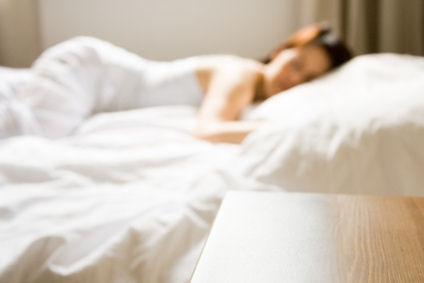Getting the right amount of sleep is crucial towards maintaining a healthier existence during our physical and mental activities, however, as people grow older and age, sleep-related problems often start to crop up. As we age, we do experience some changes in our sleeping pattern and duration as compared to when we were young but we do still need our quality sleep.
Some common forms of treating sleep deprivation is to schedule your bedtime, make your room cozy and comfortable, make sure your room is the right temperature, relax, meditate and not indulge in caffeine related drinks just before your sleep, but these methods usually work on those whose sleep deprivation problems are due to an unhealthy or unnatural lifestyle. In the elderly, sleep related problems are often more complex than that and most of the time, it’s an underlying medical issue that’s causing the disturbance.
However, the medical conditions that can cause sleep disturbance in the elderly cannot be directly recognized as being the culprits because they seem to have no direct relationship with sleep, but the disturbance that they can cause is enough to make seniors feel uneasy throughout the night and make them lose out on quality sleep.
Uninterrupted sleep is necessary, it’s during the REM (Rapid Eye Movement) sleep stage, which we don’t reach if our sleep gets interrupted often, that the brain revitalizes its cognitive functionality. Already dealing with weakened mental and physical capabilities due to the process of aging, it’s important for the elderly to get proper sleep so that they can maintain proper brain and physical health and to do that, we need to know more about the common causes, their effects and how they can be neutralized.
Underlying health issues:
There are primary medical conditions which can cause sleep deprivation but what we often ignore are the secondary medical issues that disrupt sleep in the elderly. These secondary issues, which often occur during old age, are often hard to discern as the main culprits because their primary list of symptoms do not include the fact that they can cause an elderly to lose sleep.
Seniors can often experience sleep problems if they have lung or cardiovascular conditions which may cause excessive pain or discomfort during the night, bone or muscle related problems like arthritis, joint pain, muscular atrophy, neurological disorders like dementia and more.
Making sure that whether medical conditions like these are contributing towards sleep problems or not is immensely important and to do that, the best way is to take your senior to see a medical practitioner and get them checked. Additionally, do ensure that any of the prescription drugs that the elderly might be taking due to their medical conditions are not causing loss of sleep.
Sleep apnea:
The quality of breathing is important towards maintaining uninterrupted sleep but if a senior has sleep apnea, then they might not be able to breathe properly during sleep. Sleep apnea can cause breathing to stop intermittently and sometimes these pauses can be in the hundreds in a single night. Mostly, the elderly are afflicted by obstructive sleep apnea, which causes the airway to get blocked due to the collapse of a certain tissue in the throat.
Diagnosing sleep apnea is quite difficult because it can be mistaken for a clogged nose due to cold or flu and you might need to spend a night with your senior to check whether they have breathing difficulties similar to do that of sleep apnea by checking for certain symptoms like loud snoring and waking up often with a sensation of gasping for air.
The most effective solution for sleep apnea, are mouth devices like CPAPs (Continuous Positive Airway Pressure) which neutralize the problem of blocked airways and make the elderly breath normally during sleep.
Frequent Urination Problems:
Getting up multiple times to urinate will certainly cause a high amount of disturbance in the sleep cycle of the elderly, but certain conditions like enlarged prostate or bladder problems can certainly lead to excessive urination during the night.
The best way to counter this is the help the elderly drink fewer amounts of fluids during the day, which would help them, urinate lesser. Losing excessive weight and performing exercises like Kegel workouts will also help immensely with this problem. But for a long term solution, a visit to the hospital is necessary for a thorough check up.
Everyone knows about the importance of a good night’s sleep and how cranky and tired can we get if we don’t get it, but when it comes to elders, they often require support and care to overcome their problems and whether you are a professional caregiver or a daughter looking after her father, you need to be there for them and help them manage and navigate through this difficult phase of their lives. These sleep-related issues require your help and you should be there to help your father/mother, aunt, uncle or any other senior that you are taking care off to sleep deep, well and soundly.




